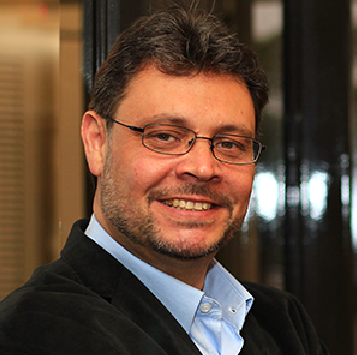
Exclusive interview with Werter Padilha, coordinator of the IoT committee at ABES
A study produced by ABES, in partnership with IDC (International Data Corporation), estimated that the Internet of Things market reached US$ 4.1 billion in Brazil alone in 2016, with US$ 37 million corresponding only to domestic devices. Thus, there is a favorable scenario for IoT growth in the Brazilian market.
The Federal Government, via the Ministry of Science, Technology, Innovation and Communications (MCTIC) and the National Development Bank (BNDES), expects to launch a National Plan for the Internet of Things in the second half of 2017, for which ABES delivered a document with several contributions (see the full document here). But what to expect from all this movement, initiatives and discussions?
On the subject, the ABES Portal interviewed businessman Werter Padilha, CEO of Taggen and coordinator of the entity's IoT Committee. “I have been following the discussions and evolution of IoT technologies for more than two years. It is very important to see that the MCTIC and the BNDES are working together and in an articulated way in this process, mobilizing relevant specialists and opinion makers”, said Padilha. Check out the entire interview:
How is the National IoT Plan being prepared?
This plan will be the result of an intense effort to diagnose and develop public policies on the Internet of Things (IoT). This study involves a broad survey of the actions of public agents, companies, associations, research institutes and legal issues, carried out in a coordinated manner by the Telecommunications Research and Development Center (CPqD), by the Mckinsey Global Institute consultancy and the Pereira office. Neto Macedo Advogados. The IoT is challenging, as it is an environment where all technologies converge: artificial intelligence, SaaS, cognitive computing, cloud computing, mobile, big data, information security, among others.
Why is a National IoT Plan important for Brazil?
I remember a presentation I attended some time ago, given by BNDES, which highlighted the huge deficit of the Brazilian trade balance in ICT, year after year (see attached). The BNDES representative was already concerned about this deficit, which would continue to expand with the digital transformation process, if nothing was done. Fortunately, we currently have a very strong guideline on the part of several public agents focused on changing this attitude of Brazil only as an importer of technologies. The National IoT Plan shows maturity, because everyone will act better if they have knowledge about the national IOT scenario and defined investment policies. Thus, the country will have technologies and solutions that serve both the domestic and foreign markets. It is worth remembering that Brazil has an IoT Chamber, since 2014, linked to the MCTIC, which was already mobilized to discuss this topic.
How is Brazil situated in the global IoT scenario?
The country is already, in principle, a large consumer market for IoT technologies and services and will be even bigger, either because of its geographic extension, its population of more than 200 million inhabitants and, mainly, because Brazilians are “early adopters”, like to use new technologies. Brazil is already a winner in these aspects, but it cannot have a passive position, as we may have a big problem due to the growth in imports of technologies, both hardware and software, which could affect our trade balance even more and place us as totally dependent on other countries.
What, in your opinion, needs to change for the success of this plan?
We need structures that provide more synergy and approximation between the actors of the research ecosystem, investments, public policies, companies and public bodies. The National IoT Plan will affect the whole of society. The Government has to be an enabler, as if it were a great incubator and accelerator, without putting a straitjacket on the initiatives. I am quite optimistic, without ceasing to be realistic, as we have engineers, professionals from different areas and competent entrepreneurs. You can't do anything alone anymore. It is necessary to break this paradigm and promote joint work in line with global protocols and standards, whether to meet domestic demand or for export.
Is Brazil late in defining a national IoT strategy?
I can say that Brazil is not late. This Brazilian initiative is fantastic. There are few countries in the world that have projects like ours. Brazil is not far behind, because all the mobilization of companies, universities and governments around the internet of things is also very recent in the world. We are entering at the right time and investing in planning, including establishing the verticals that should be prioritized, such as agribusiness, health and advanced manufacturing, among others. Despite the crisis, it is worth remembering that the Brazilian economy remains among the 10 largest in the world and is attractive to investors, as we have a coveted market and great potential to generate technologies and services.
How is the issue of standardization of technological standards in IoT?
Regarding the standardization of technological norms for the Internet of Things, I believe that Brazil should participate more actively in the groups that are discussing and defining interoperability and compatibility between connected devices. This is a type of action that brings technical, political and strategic benefits, which needs to be further encouraged by the government for the evolution to continue.
Tell us a little about the ABES IoT Committee.
This committee is a microcosm of what is happening in Brazil around this ecosystem. Executives were very interested, as they know that IoT is important for the future sustainability of the business. We have several companies that are already, in some way, engaged in this ecosystem. ABES is also a facilitator, which can generate synergies among associates. Proactivity on the part of the entrepreneur is essential so that he does not miss opportunities, always basing his actions on planning, analytical capacity, partnerships and strategies to act in complexity.












